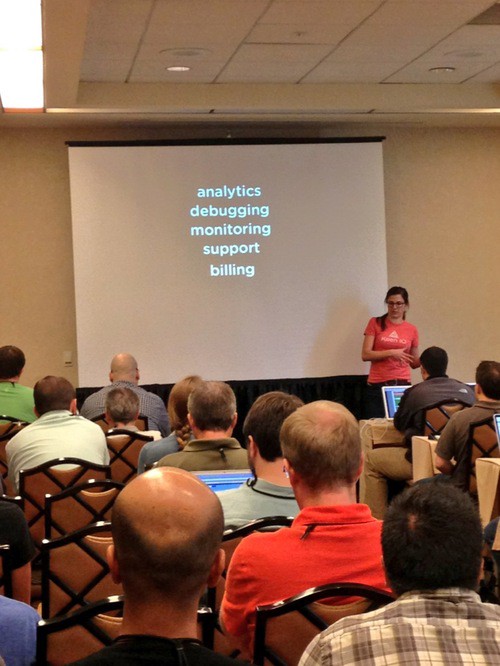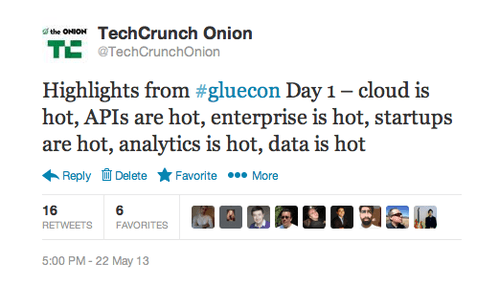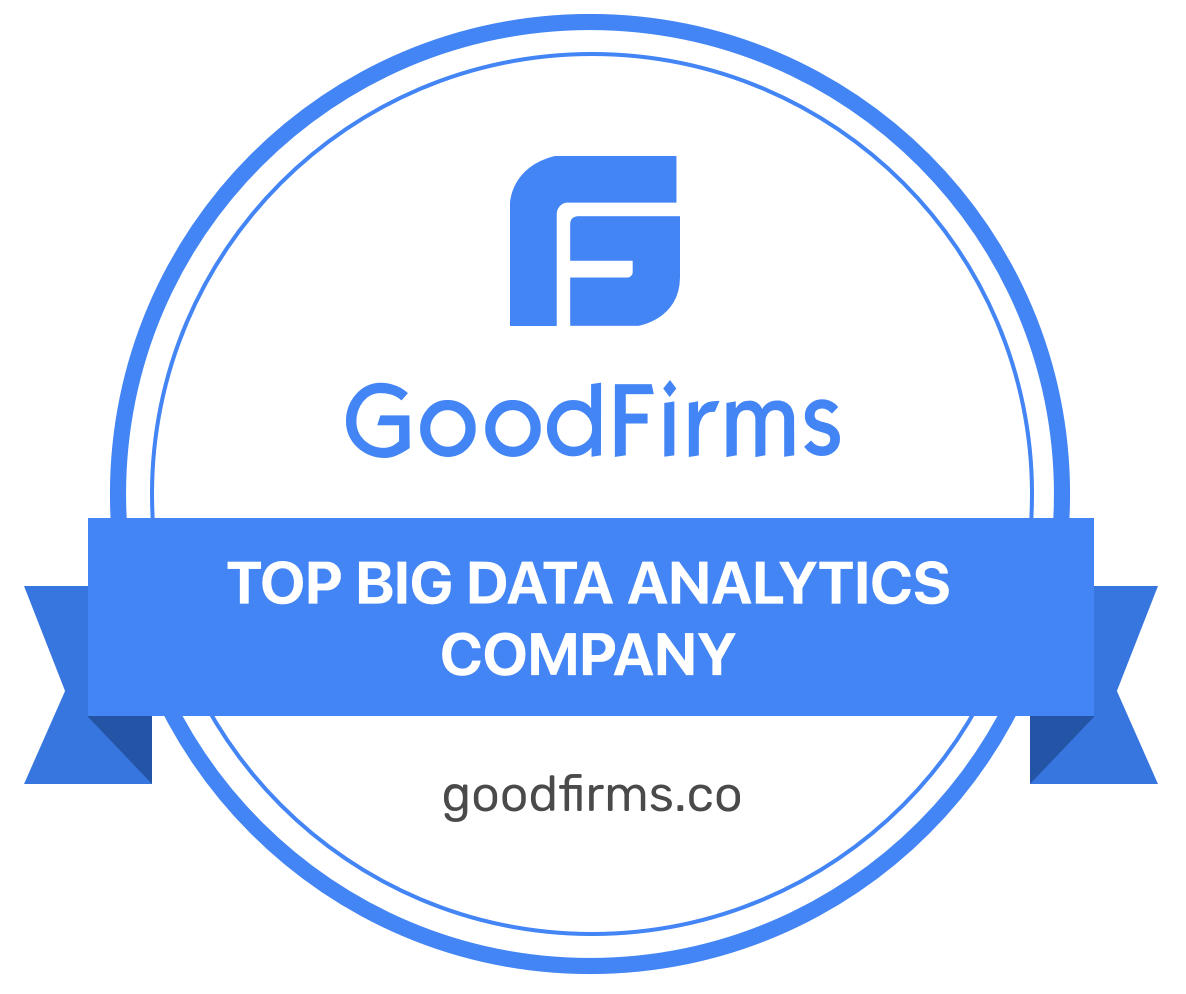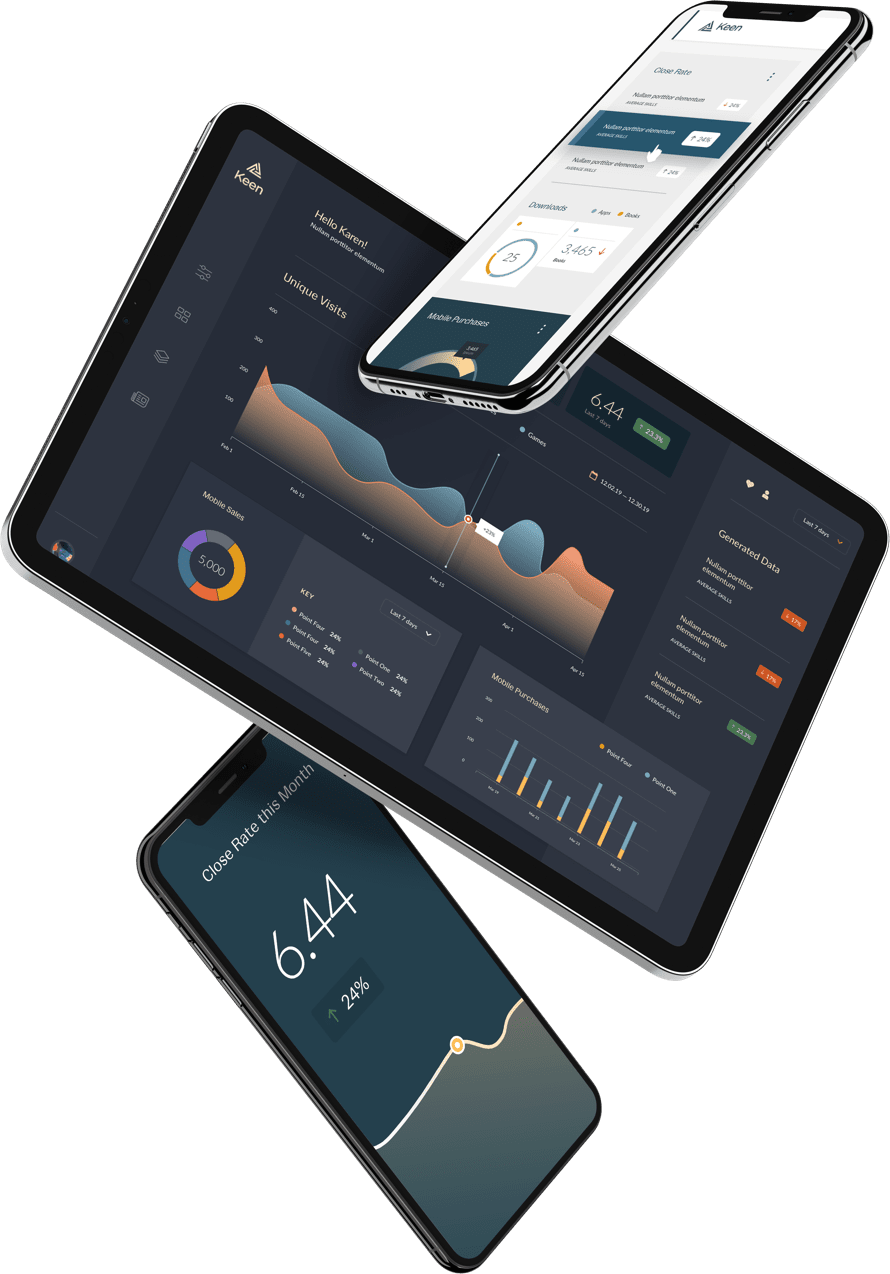Gluecon 2013 is coming to an end, but what a great conference! We were pleased to participate, and also had the special opportunity to present. Read on for some highlights of Glue and the talk we gave.
Glue? Conference
Yes, the conference is just called Glue. The word “Glue” is a metaphor for the APIs and metadata that Internet applications use to talk to one another. It’s said that APIs “glue” the web together, enabling otherwise siloed services to share data and coordinate activities. Some of us (hint) spend a LOT of time thinking about APIs and how to connect up our favorite services. Then we go to Glue and talk about it.
Glue is known for its deeply technical talks and the outstanding caliber of presenters and attendees. Take a look at just some of the topics we covered this year:
- Distributed system anti-patterns
- Storm, Kafka, and ZeroMQ
- Machine Learning APIs
- Polyglot persistence applications
- Real-time analytics at massive scale
That’s some heavy lifting, no?
Even with the stellar lineup of talks, I still think the best parts of Glue are the hallway and happy hour conversations with folks that are working on the same problems that you are.
Like Burning Man, Glue eschews the term “attendee” in favor of “participant”. It’s not just about watching talks but also sharing and collaborating.
Everyone here is focused on APIs, cloud, mobile, or other types of electronic “glue”, and you’ll find them happy to tell you all about it. (If necessary, warm them up with a craft beer at the Tap Room.)
Presenting “Analytics for Hackers: How to Think About Event Data”

Michelle hit her talk out of the park. Though up against 4 other sessions, it was really well-attended. I mean… even Adrian Cockcroft was there. (Thanks Adrian!) The talk was about event data, both the “philosophical” underpinnings and application. We’ll post the talk next week, but here’s a synopsis of my notes:
- Everything — software, physical things, etc — produces events, and we now have tools and technologies sufficient to capture and process them at scale.
- Event data is more effective than entity data for many things. For analytics but also for monitoring, debugging, behavior tracking, triggering, and anything where time or history matters.
- Event data tends to be wide, w/ flexible schema, and denormalized whereas entity data tends to be fixed-schema, normalized, and grows less quickly.
- Existing transactional databases deal well with entity data, but not with event data (at least out of the box). Dealing with event data at scale is a harder problem — more data & “big” reads (e.g map reduce).
- Linearly-scalable distributed systems with tunable parallelism work best for event data at scale.
From my conversations with developers, there is often a basic familiarity with event data but not a great understanding of it as a unique format that requires an adapted set of tools to get real value from. I think Michelle’s presentation puts that front and center and gives developers a solid foundation for thinking about event data.
Wrapping up
It’s an exciting time to be working on hard technical problems and even more exciting to have places like Glue to work on them together.
Internet “Glue” is a big deal right now. I think @TechcrunchOnion said it best:

Even Gluecon itself is white hot. We couldn’t agree more!



